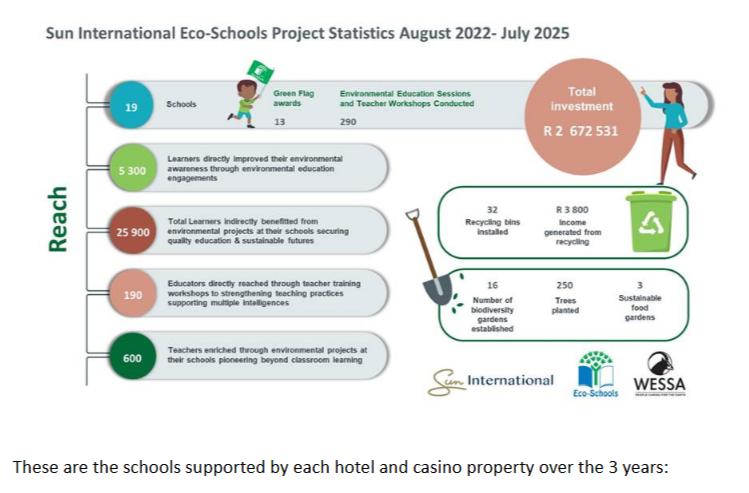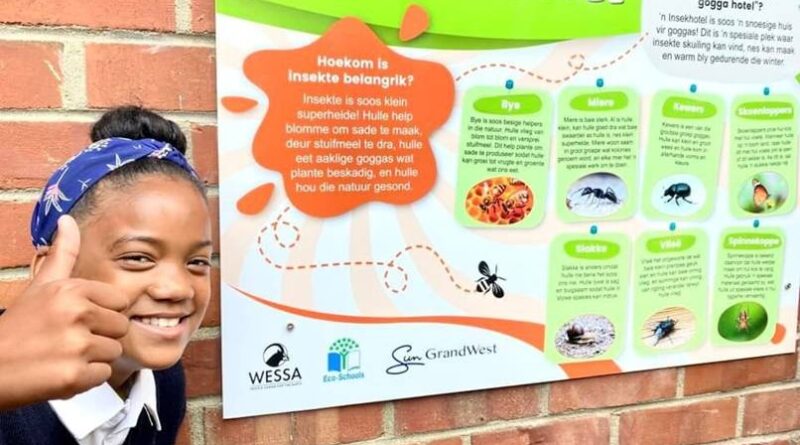Three-Year Eco-Classroom Program Concludes
Johannesburg – Sun International and the Wildlife and Environment Society of South Africa (WESSA) have announced the completion of a three-year partnership that has significantly impacted schools and communities nationwide.
Through this collaboration, the two organizations reached 19 schools across the country, aiding in the establishment of eco-classrooms to enhance environmental resilience.
Sun International invested R2.6 million into the initiative, with selected schools located near the following properties:
- Central Office – Johannesburg
- Carnival City – Johannesburg East
- Time Square – Pretoria
- Sibaya – Durban
- GrandWest – Cape Town
- Golden Valley – Worcester
- Wild Coast Sun – Bizana, Eastern Cape
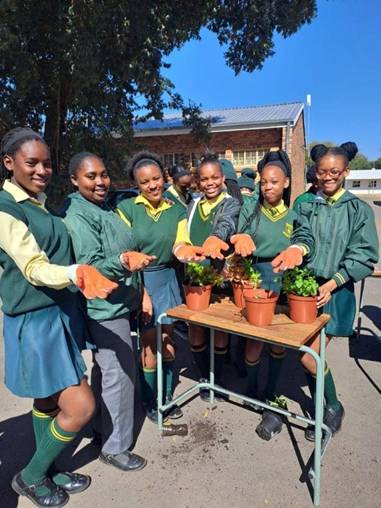
During Sun International’s three-year partnership with WESSA, students from schools across the nation were supported in their efforts to create eco-classrooms that foster environmental resilience within their communities.
WESSA, which has been the national operator of the Eco-Schools programme in South Africa for over 21 years, was developed by the Foundation for Environmental Education (FEE) to promote global environmental learning.
Sun International’s contribution of over R2.6 million has bolstered the programme across schools in proximity to their properties.
The project engaged more than 5,300 students from Grade 1 to 12 and concluded with three World Environment Week events, where students greatly enjoyed their presentations and the interactive educational programme.
“In the past three years, our Sun International Eco-Schools project has effectively assisted schools in creating eco-classrooms where students, educators, and school leaders utilized the eco-schools’ seven-step framework to develop resilience in their schools and communities,” said Sun International’s SED Manager, Heidi Edson.
The Sun International Eco-Schools project has enabled 19 schools to educate their communities about environmental care, reaching over 25,900 learners and 600 teachers.
Through 30 teacher workshops, 260 environmental education sessions, and hands-on activities like waste collection, the project has promoted environmental stewardship and behavioral change.
A successful cleanup event further strengthened community engagement and sustainable practices, aligning with Sun International’s commitment to social responsibility and environmental impact.
Central Office, Johannesburg
The Sun International Central Office Eco-Schools project made significant strides in promoting environmental education across four Gauteng schools: Moduopo Primary, Ipontshe Primary, Ekukhanyisweni Primary, and Tembisa School of Specialisation.
In its second year, the initiative modified school environments by establishing four biodiversity gardens and vertical greening projects.
These projects included the planting of over 150 indigenous species and strengthened ties to nature by incorporating ecological themes into classroom learning through technology, creativity, and hands-on activities.
Students conducted biodiversity audits using citizen science apps, celebrated International Biodiversity Day with eco-walks and recycled bird feeders, and deepened their understanding of South Africa’s unique flora through plant propagation activities.
Teachers received innovative teaching resources at two themed workshops, aligning biodiversity education with the national curriculum.
Excellence was recognized at the WESSA Schools Awards, where Moduopo and Ipontshe Primary schools earned the esteemed International Green Flag, and Christina Lephalala from Moduopo Primary was awarded the FEE Teacher of the Year for her outstanding leadership and commitment.
Carnival City, Johannesburg East
The Carnival City Eco-Schools project greatly influenced two Gauteng schools – Tsimong Primary and Buhlebemfundo Secondary – transforming them into proactive centers for environmental education and action.
Students and teachers actively engaged in biodiversity workshops, citizen science surveys, and the establishment of two indigenous biodiversity gardens featuring over 110 trees, shrubs, and succulents.
These efforts helped integrate sustainability into the schools’ culture and cultivated a deeper appreciation for local ecosystems.
Students celebrated Arbor Week by planting trees and presenting research on species, while teachers participated in interactive workshops that merged biodiversity, technology, and curriculum-based environmental learning.
In its third year, the project transitioned towards sustainable waste management by initiating school-based recycling programs, joining the Sweethearts Foundation bread tag initiative, and organizing a Waste Fashion and Art Show to highlight upcycling.
Both schools received Silver Awards in 2024 and were granted the prestigious Eco-Schools Green Flag in March 2025, acknowledging their commitment to sustainability, climate action, and empowering youth as environmental stewards.
Time Square, Pretoria
The Time Square Eco-Schools project supported two Gauteng schools – Mamelodi Prevocational School and Soshanguve Secondary School – engaging students and teachers through immersive environmental education and biodiversity-focused activities.
The programme fostered a rich understanding of ecological issues through citizen science surveys, biodiversity index calculations, and field-based learning using apps such as iNaturalist and PlantNet.
Students documented 269 species across birds, insects, and trees, establishing a benchmark for future restoration efforts.
Key initiatives included the creation of two biodiversity gardens with over 148 indigenous plants, consisting of trees, shrubs, succulents, and medicinal species, serving as active learning spaces.
Students participated in practical activities such as spekboom propagation, establishing bottle irrigation systems, and crafting recycled bottle planters, while teachers attended two dynamic workshops on merging technology, creativity, and Curriculum and Assessment Policy Statements linked biodiversity education.
Both schools received the Green Flag award at the WESSA Schools Awards, highlighting their dedication to sustainability.
Sibaya Casino & Entertainment Kingdom, Durban
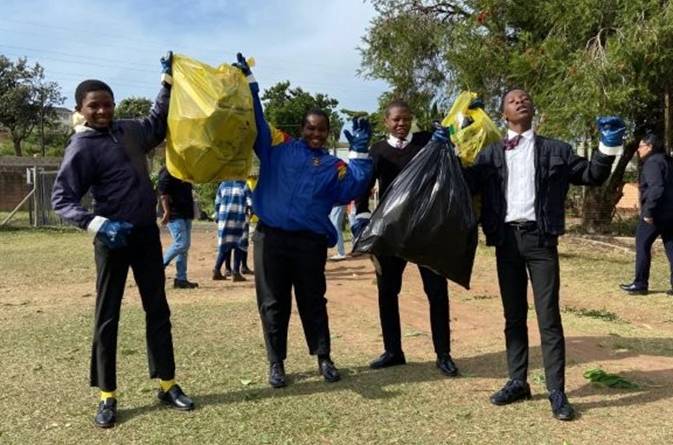
The Sibaya Eco-Schools project supported five schools in KwaZulu-Natal – Sterngrove Primary, Phoenix Secondary, Glenhaven Secondary, Waterloo Secondary, and Palmview Secondary – empowering both students and teachers to lead projects tackling urgent health and well-being challenges.
Throughout the initiative, students in grades 8 and 9 took part in workshops and planning sessions to recognize and address issues such as cyberbullying, substance abuse, poor hygiene, and waste mismanagement.
Each school developed a unique, student-driven action project:
· Sterngrove and Palmview Secondary created wellness gardens to promote mental well-being and offer tranquil green spaces for reflection.
· Phoenix Secondary initiated a vegetable garden, a drug awareness campaign, and a mental health and hygiene club, merging nutrition, advocacy, and care.
· Glenhaven Secondary implemented a vertical garden using recycled 2L bottles and crafted upcycled mats to support their mental health initiatives.
· Waterloo Secondary focused on physical fitness as rehabilitation along with recycling efforts that built eco-brick benches around the sports field.
These initiatives reflect a solid commitment to addressing the social determinants of health within the school communities, leveraging environmental education as a means of empowerment.
GrandWest, Cape Town
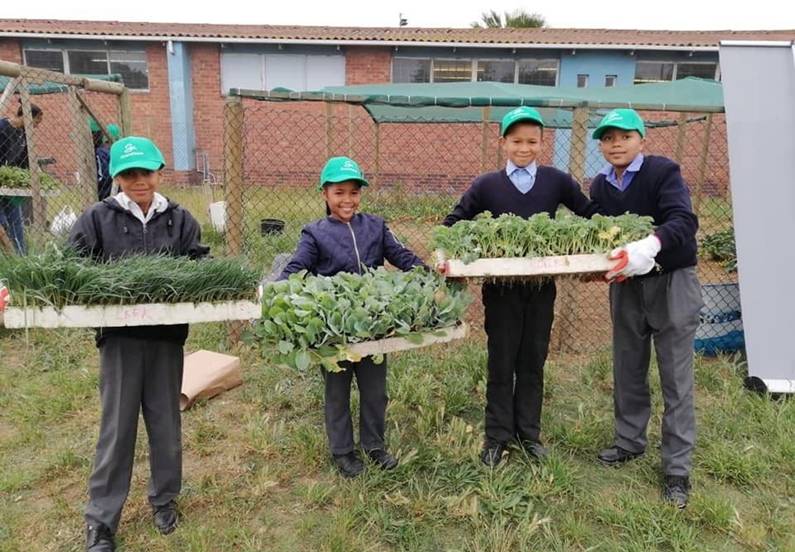
The GrandWest Eco-Schools Project empowered three schools in the Western Cape – Bellville South High School, Riverton Primary School, and Elswood Secondary School – to transform their learning environments through biodiversity restoration, waste reduction, and comprehensive environmental education.
The initiative nurtured a culture of environmental stewardship and sustainability by engaging both students and teachers directly while inspiring broader participation throughout the school communities.
Key highlights include:
- Two biodiversity gardens were created, featuring 80 indigenous plants from the Fynbos Biome, now acting as living outdoor classrooms.
- Recycling and waste management systems were established, including training sessions, clean-ups, and the provision of color-coded bins, with Elswood High School recycling over 700kg of waste through its collaboration with Godfrey Recycling.
- Creative projects such as the Trashion Show, insect hotel construction for Earth Day, and crafting bird feeders on Mandela Day raised awareness of biodiversity and sustainability through art and action.
- Teachers took part in two impactful workshops focused on biodiversity, curriculum integration, and Education for Sustainable Development (ESD), equipping them with tools to connect environmental learning to CAPS.
- Learners developed leadership and project planning abilities through project-based learning models centered on waste, biodiversity, and health and well-being.
- At the 2024 WESSA Western Cape Schools Awards, Bellville South High and Riverton Primary earned the Green Flag, while Elswood High achieved its first Silver, marking a strong path for continued growth in 2025.
CAPTION: Riverton Primary School learner with the Insect hotel (Gogga Hotel) information board.
“Students who grasp the science, impacts, and solutions are better equipped to tackle the climate crisis and advocate for both local and national mitigation and adaptation policies,” explained WESSA senior project manager Nomfundo Ndlovu.
“Education provides individuals with the skills and knowledge needed to better prepare for and recover from natural hazards.
“With knowledge and skills, they can adapt with greater flexibility. Through our educational programmes, WESSA aspires to inspire the next generation to advocate for and act towards a healthy planet they can take pride in.”
Golden Valley, Worcester
A hands-on vermicomposting initiative was launched at Bo-Doorn Rivier Primary School using upcycled materials, supporting both environmental education and food security.
This compost initiative aids in improving vegetable yields for their nutritional programme, while a climate education session equipped students with practical knowledge.
The project garnered local media attention, enhancing visibility for environmental education in the area.
Golden Valley participated for a brief period during the three-year timeline.
Wild Coast Sun, Bizana, Eastern Cape – concluded prior to the three-year period.
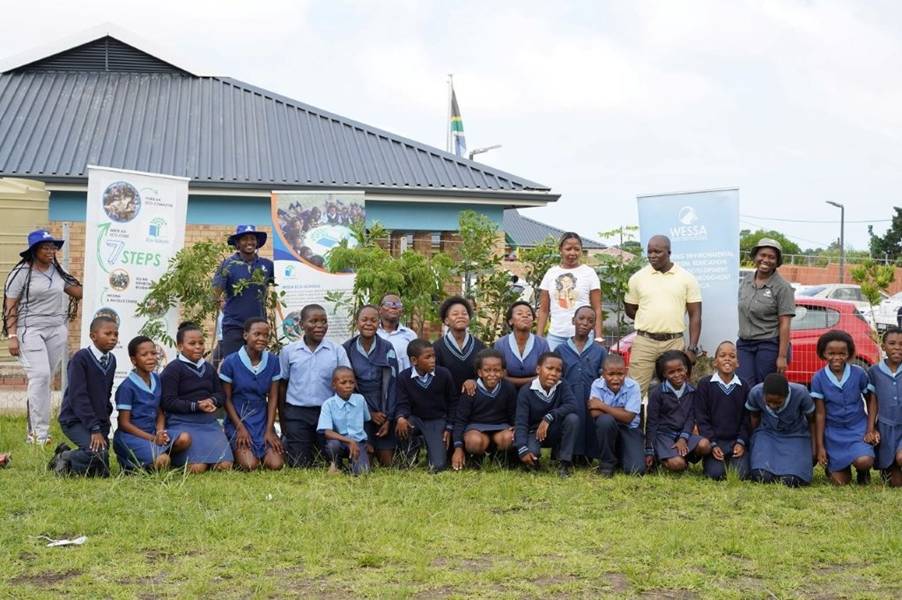
In an impactful partnership with WESSA and Wild Coast Sun, Plangeni Junior Secondary School became a model for environmental stewardship and student-led action through its involvement in the Sun International Eco-Schools Programme.
Through workshops facilitated by WESSA, Eco-Committee students pinpointed significant social and environmental challenges within their school—including bullying, pollution, and food insecurity.
Utilizing problem-solving strategies, they co-created two meaningful initiatives: revitalizing the school’s food garden and launching a composting and greening campaign to enhance their learning environment.
Teachers attended a capacity-building workshop at Wild Coast Sun, where they were introduced to the Eco-Schools programme’s seven-step framework and received training on integrating environmental themes into their lessons.
This training solidified curriculum delivery through hands-on learning and ongoing peer support via a dedicated WhatsApp group.
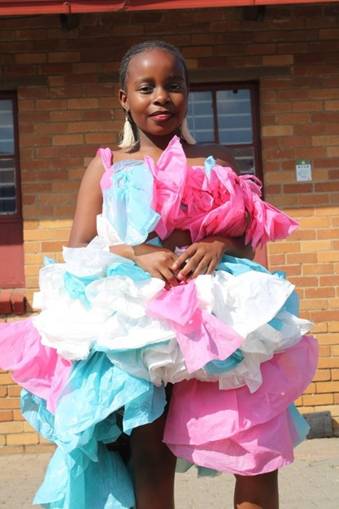
In recognition of Global Recycling Day, students, educators, and parents engaged in imaginative recycling activities that turned waste into art, raising awareness about waste reduction and circular thinking.
The school inaugurated a greening initiative to foster biodiversity and enhance student wellness, followed by successfully planting 1,160 vegetable seedlings—including cabbage, lettuce, and peppers.
This milestone confirmed Plangeni’s commitment to food security, sustainable agriculture, and youth empowerment.
These initiatives have cultivated a strong sense of environmental responsibility at Plangeni Junior Secondary.
Students are emerging as change agents, teachers are equipped with tools for sustainability education, and the broader community is actively engaging in shaping a greener, healthier school.
WESSA and Wild Coast Sun applaud Plangeni Junior Secondary for its dedication to creating inclusive and climate-smart learning spaces, paving the way for long-term social change.
Wild Coast Sun participated for a brief period during the three-year timeframe.
